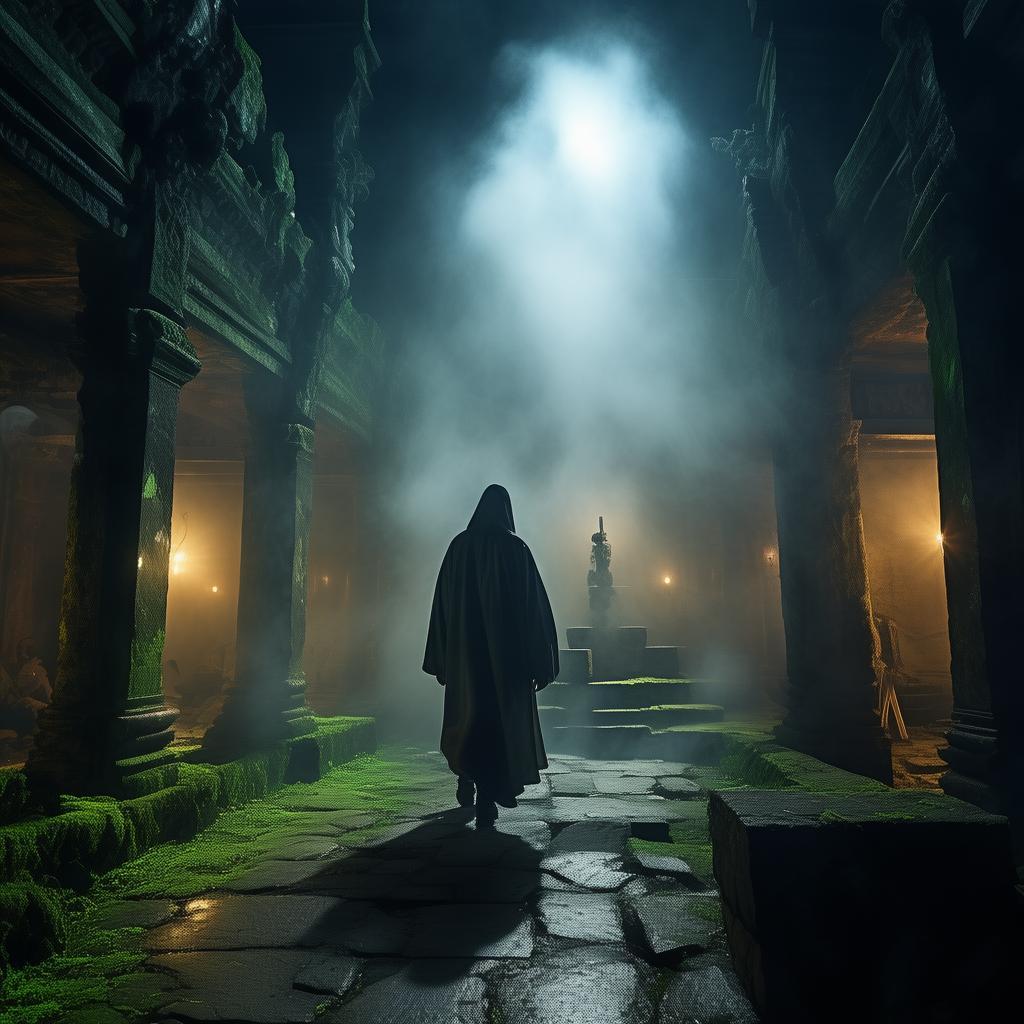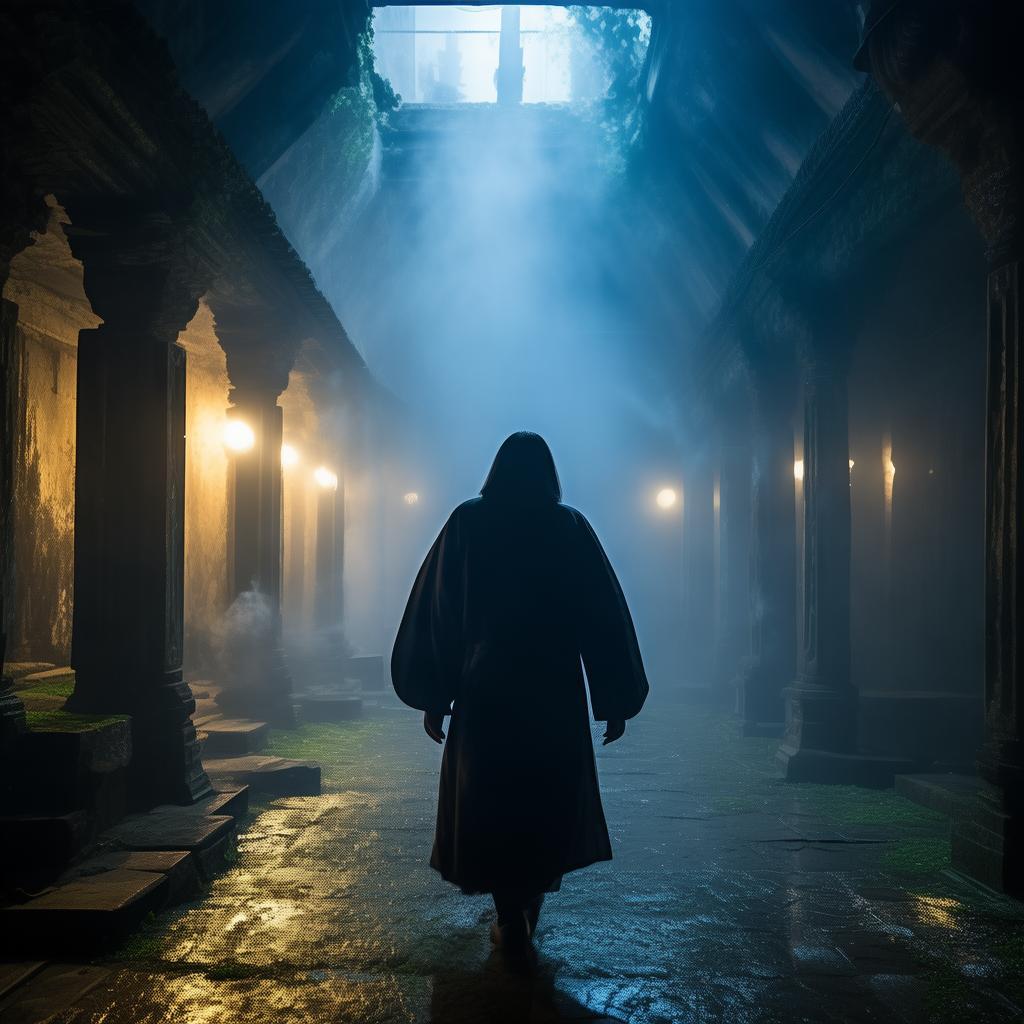The Haunting Symphony of Shanghai's Abandoned Tenement
In the heart of Shanghai, amidst the towering skyscrapers and bustling streets, stood an old tenement building that had seen better days. Its once-grand facade was now a patchwork of peeling paint and broken tiles, a silent witness to the city's rapid transformation. It was here that the eerie melody began to resonate, a haunting tune that seemed to come from nowhere and nowhere at all.
The melody was first heard by Xiao Mei, a young musicologist and avid enthusiast of Shanghai's rich musical history. She had been researching the city's classical music scene when she stumbled upon an old, tattered newspaper article about the tenement. The article spoke of a legend, a melody that had been heard in the building's shadowy halls, a melody that was said to be the voice of the building itself, crying out for help.
Intrigued by the story, Xiao Mei decided to investigate. She had always been drawn to the city's old, forgotten places, the stories they held locked within their walls. It was her belief that every building had a story to tell, and this one, with its haunting melody, was calling out to her.
The first night Xiao Mei entered the tenement, she felt a shiver run down her spine. The air was thick with dust and the scent of old wood, but it was the melody that truly unnerved her. It seemed to come from everywhere at once, a hauntingly beautiful sound that made her heart race. She followed the sound to the building's third floor, where the source of the melody was revealed: a dilapidated music room, its windows broken and its piano covered in cobwebs.
Xiao Mei approached the piano, her fingers tracing the keys that had been untouched for decades. She played a few notes, and the melody filled the room, a mix of sorrow and longing. It was then that she noticed a small, ornate box on the piano's bench. She opened it to find a photograph of a young woman, her eyes filled with pain and sorrow. The photograph was dated 1943, and it was accompanied by a note that read, "I will never forget you, Shanghai."
Intrigued, Xiao Mei began to delve deeper into the woman's story. She discovered that she was a Shanghai native, a violinist named Ling, who had been forced to flee her home during the Japanese occupation. She had hidden in the tenement, playing her violin to keep her spirits up, but she had never returned.
As Xiao Mei delved further, she learned that Ling had been involved in a secret resistance group. One night, the Japanese soldiers had raided the building, and in the chaos, Ling had been captured and executed. Her last act had been to play a final, haunting melody, a testament to her love for her city and her people.
Xiao Mei was determined to bring Ling's story to light. She reached out to local historians and began to piece together the details of Ling's life. She discovered that Ling had not only been a violinist but also a poet, her songs and poems a reflection of her love for Shanghai and its people.
The melody, it turned out, was not just a haunting tune; it was a call to remember and honor the sacrifices made by those who had fought for their city. Xiao Mei began to perform Ling's music in concerts, using her research to tell her story. The haunting melody became a symbol of resilience and hope, a reminder that even in the darkest times, there was beauty and strength to be found.

As Xiao Mei's performances gained attention, the tenement began to draw curious onlookers. They came to hear the melody and to learn about Ling's story, and in doing so, they found a piece of themselves. The tenement, once a forgotten corner of Shanghai, became a place of remembrance and reflection.
The haunting melody of Shanghai's abandoned tenement had found its voice once more, and it was resonating with the hearts of those who heard it. Xiao Mei had uncovered a story that had been lost to time, and in doing so, she had given Ling's legacy a new life.
The tenement, now a museum dedicated to Ling's memory, stands as a testament to the power of music and the enduring spirit of those who fight for what they believe in. And as the melody continues to play, it serves as a reminder that the past is never truly gone, and its echoes can be heard in the most unexpected places.
✨ Original Statement ✨
All articles published on this website (including but not limited to text, images, videos, and other content) are original or authorized for reposting and are protected by relevant laws. Without the explicit written permission of this website, no individual or organization may copy, modify, repost, or use the content for commercial purposes.
If you need to quote or cooperate, please contact this site for authorization. We reserve the right to pursue legal responsibility for any unauthorized use.
Hereby declared.









